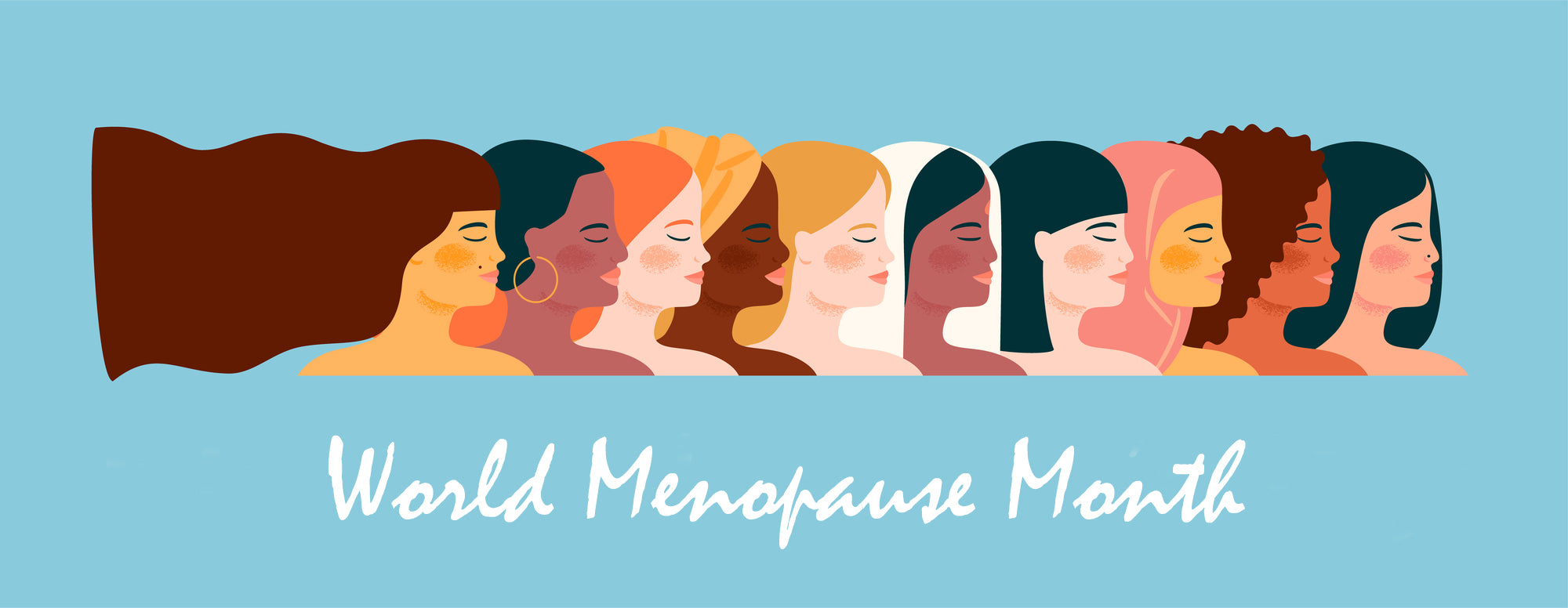If you were surprised by the reality of menopausal symptoms, you’re not alone. In one study, half of the women (some menopausal!) had a lack of understanding about the typical symptoms of menopause, and in some cases, attributed them to disease, illness, or dysfunction. Many women were never warned about vaginal dryness, hot flashes, or the fact that there’s a lot to look forward to during menopause and beyond. And if women who are experiencing the change of life are misinformed, their partners and loved ones are often even less aware. Plus, studies have shown that women who are more aware of what to expect during menopause have an easier time coping with the changes. What better time than World Menopause Month to talk about why there’s a lack of awareness around menopause.

Why Menopausal Awareness Is Lacking
- Insufficient Funding
When it comes to women’s health, breast cancer and fertility issues tend to receive the most money. So, while there is widespread research on cancer and pregnancy, the lack of research on menopause means inadequate research and less awareness—including within the medical community. Even doctors who want to know more about menopause may have trouble finding information because of the scarce research available. Without science-backed knowledge, many doctors are reluctant to mention menopausal symptoms to prepare their patients for the change. And even when women have serious menopausal symptoms, only about six percent receive treatment or medical advice. For those who have severe symptoms and don’t receive support, up to ten percent consider leaving the workforce during some of their most financially profitable years.
- Inadequate Training
Without research, the training doctors need is often unavailable. In one survey, merely one-fifth of OB/GYN doctors reported having menopause-specific training. The absence of guidance has led eighty percent of doctors to say they feel barely comfortable discussing or treating menopausal symptoms. Doctors who would like to increase menopausal awareness are often unable to due to the limited training and resources in their practice. The lack of conversation about menopause is more than just disappointing, it can increase certain health risks. For instance, severe hot flashes often mean increased risk for type 2 diabetes. Having a physician who can discuss and treat these symptoms can mean less suffering and better future health outcomes for women.
- Myths Are Pervasive
Unfortunately, the lack of current, thorough medical research on menopause is coupled with misinformation and myth. Many women believe depression and a decrease in sex drive is inevitable, when this is not the case. Society as a whole has seemingly collectively decided that menopause is a cluster of dysfunctions to be treated. As Susan Mattern said, “Western culture has conditioned us to see the symptoms surrounding it as the most important thing about this transition. They aren’t.”
- Stigma Abounds
Unfortunately, there is a lot of unwarranted shame that surrounds aging, especially for women. The stigma has been around for a long time, too. In the 1960s, Robert Wilson published a book called “Feminine Forever,” touting the magic of hormone replacement therapy well before the risks were known, and cementing the stigma of menopause with lines like, “All postmenopausal women are castrates.” Freud called menopausal women “quarrelsome, vexatious, and overbearing.” When women are too embarrassed to mention problems like vaginal dryness, and doctors don’t feel capable of starting the conversation either, women suffer needlessly.

How You Can Help Increase Awareness About Menopause
The best way to make menopause better is to become a vocal advocate for yourself. When you have symptoms, talk to your doctor about them and don’t allow your concerns to be dismissed. Many menopausal symptoms can be managed. Membrasin® offers hormone-free products that help alleviate vaginal dryness, one of the most common—and irritating—symptoms of menopause. Try the 2-Step Starter Pack today!





